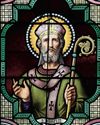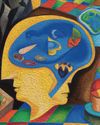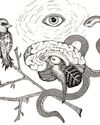
What is Hegel’s view of freedom?
His ideas about freedom have to do with four different questions. First, what is freedom? Second, what is its role in history? Third, how important is it? Fourth, what does it take to actually be free?
To take up the first issue: Freedom has three components. To be free is to be at one with oneself – what Hegel calls in German Beisichsein. One is at one with oneself when self-consciously acting out of a law that’s part of one’s own nature – acting according to ideas and principles of one’s own, not principles arbitrarily imposed from without.
This aspect of freedom involves being independent, but independence is often mistakenly identified with freedom itself, instead of being recognized as merely a component of freedom. Genuine freedom for Hegel involves not only independence, but also a kind of structured dependence on others. All three of these components – being at one with oneself, independence, and structured dependence – have to be in play for there to be full freedom instead of partial or even self-undermining freedom.
Denne historien er fra December 2023 / January 2024-utgaven av Philosophy Now.
Start din 7-dagers gratis prøveperiode på Magzter GOLD for å få tilgang til tusenvis av utvalgte premiumhistorier og 9000+ magasiner og aviser.
Allerede abonnent ? Logg på
Denne historien er fra December 2023 / January 2024-utgaven av Philosophy Now.
Start din 7-dagers gratis prøveperiode på Magzter GOLD for å få tilgang til tusenvis av utvalgte premiumhistorier og 9000+ magasiner og aviser.
Allerede abonnent? Logg på

Anselm (1033-1109)
Martin Jenkins recalls the being of the creator of the ontological argument.

Is Brillo Box an Illustration?
Thomas E. Wartenberg uses Warhol's work to illustrate his theory of illustration.

Why is Freedom So Important To Us?
John Shand explains why free will is basic to humanity.

The Funnel of Righteousness
Peter Worley tells us how to be right, righter, rightest.

We're as Smart as the Universe Gets
James Miles argues, among other things, that E.T. will be like Kim Kardashian, and that the real threat of advanced AI has been misunderstood.

Managing the Mind
Roger Haines contemplates how we consciously manage our minds.

lain McGilchrist's Naturalized Metaphysics
Rogério Severo looks at the brain to see the world anew.

Love & Metaphysics
Peter Graarup Westergaard explains why love is never just physical, with the aid of Donald Davidson's anomalous monism.

Mary Leaves Her Room
Nigel Hems asks, does Mary see colours differently outside her room?

From Birds To Brains
Jonathan Moens considers whether emergence can explain minds from brains.